Junkyard Gem: 1984 Grumman Olson Kurbside Krew Kab, Frito-Lay Edition

Most of the vehicles you’ll find in the Ewe Pullets of the land will be ordinary cars and trucks, but unexpected surprises can show up in the mix. I’ve documented ice cream trucks, TV stars, art cars, military staff vehicles and even a tank over my years of exploring automotive history in junkyards. Today’s Junkyard Gem is an icon of the American crunchy-snacks industry, found in a boneyard near Monterey, California.
Plenty of vehicle manufacturers have aircraft in their DNA, including Saab, Subaru/Nissan (via the Nakajima Aircraft Company) and Mitsubishi. Grumman Olson was born when the Grumman Aircraft Engineering Corporation was commissioned to build Kargo King delivery trucks in 1946.
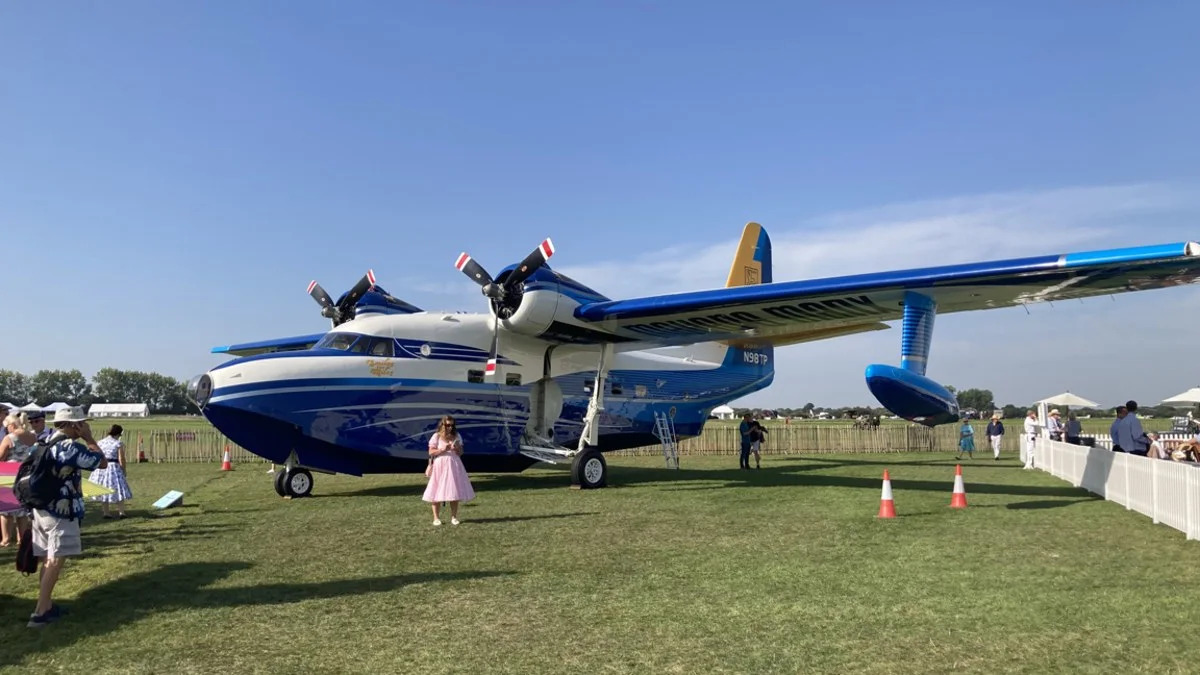
Grumman began building aircraft for the United States Navy in 1931, and its tens of thousands of fighters and flying boats played a major role in crushing the Axis during World War II. Northrop Grumman still builds airplanes, and it was Grumman’s flying-machine-derived expertise with aluminum that made Grumman Olson delivery trucks such a sales hit.
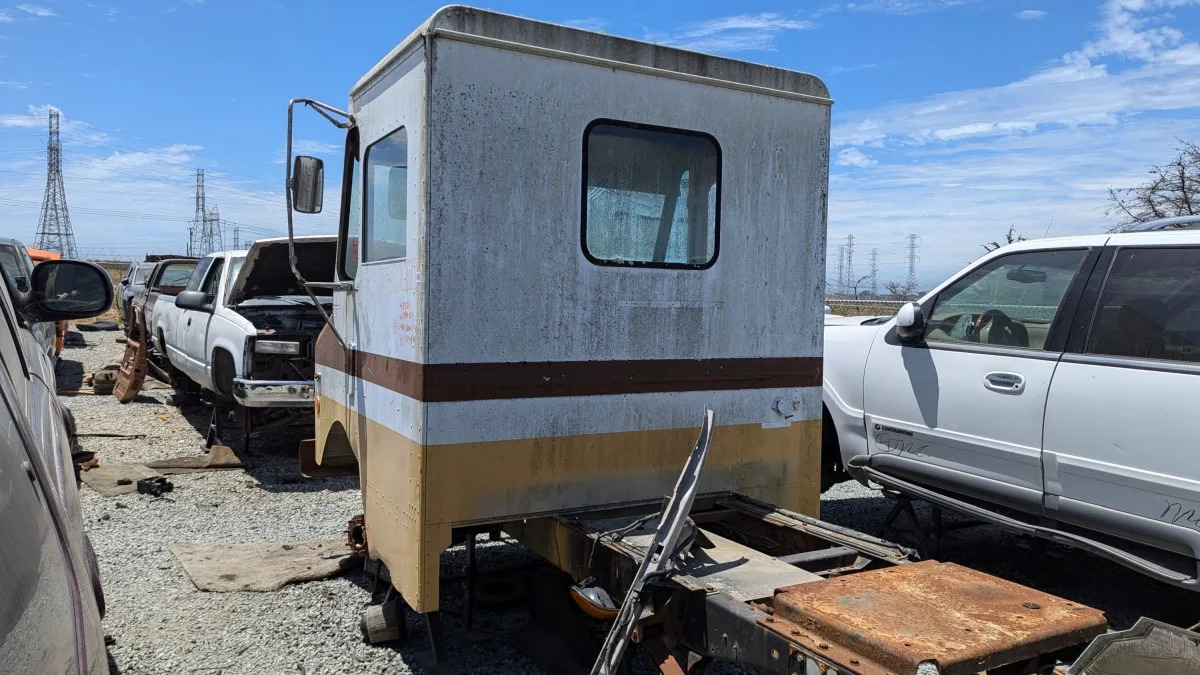
The Kargo King truck used a Grumman-built lightweight aluminum body atop a Chevrolet-built truck chassis, and that formula continued with the Kurbside delivery truck, which debuted in 1948.
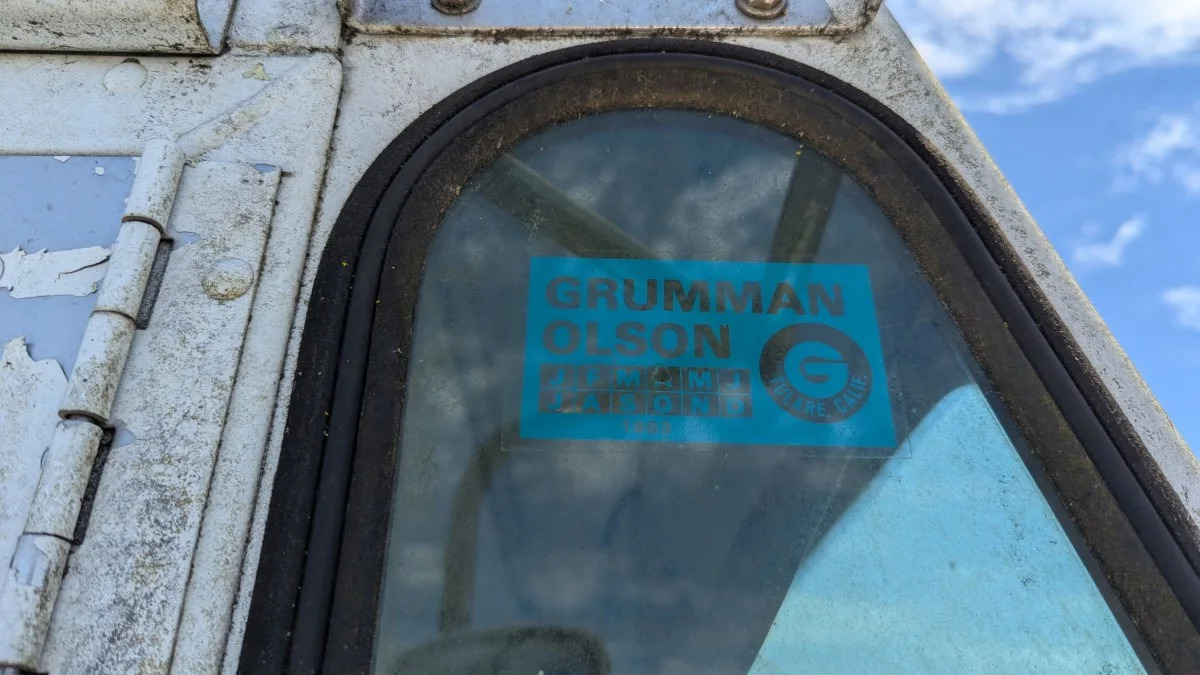
Grumman Olson assembly plants sprang up all over the country. This Kurbside was built in Tulare, California, about 175 miles to the southeast of its final parking spot.
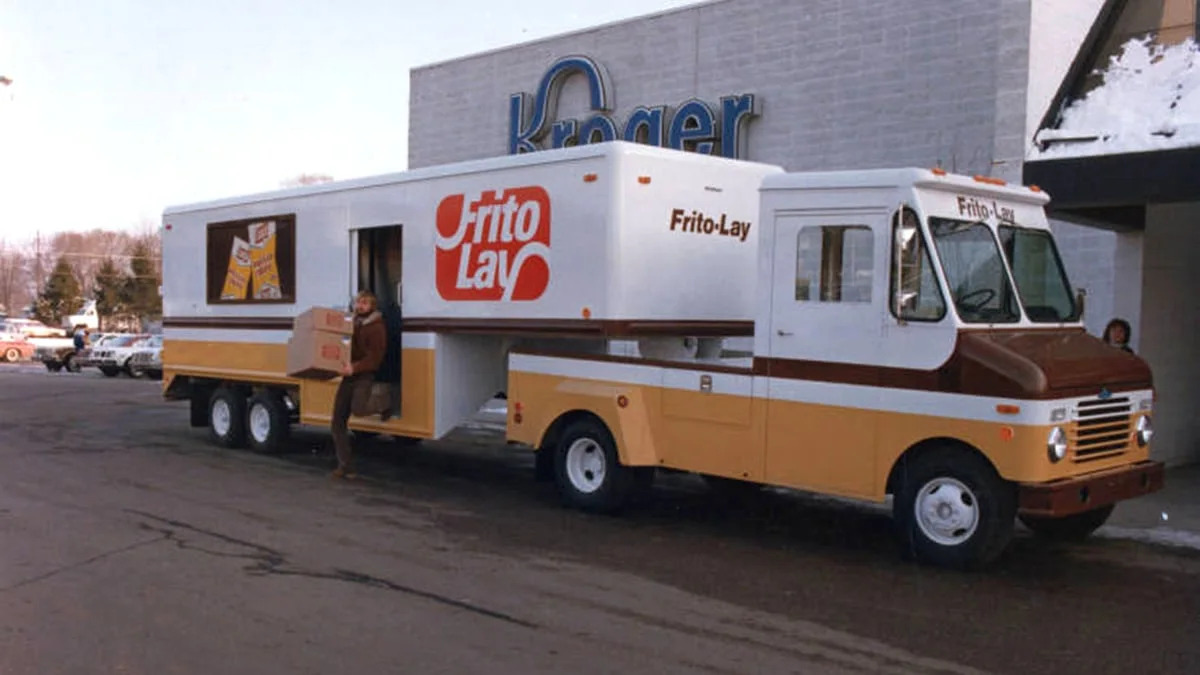
United Parcel Service was the best-known buyer of Grumman Olson trucks, but most Americans who were around during the 1970s and 1980s still remember the distinctive Frito-Lay Kurbside Krew Kabs with their matching Kubemaster trailers. Those trailers would be stacked floor-to-ceiling with Fritos, Lay’s Potato Chips, Grandma’s Cookies, Funyuns, Munchos, Doritos, Tostitos, Rold Gold Pretzels, Ruffles, Cheetos, Crunch Tators and all the rest, delivering them to retail establishments across the country. Thanks to the Cradle of Aviation Museum for providing this photograph!
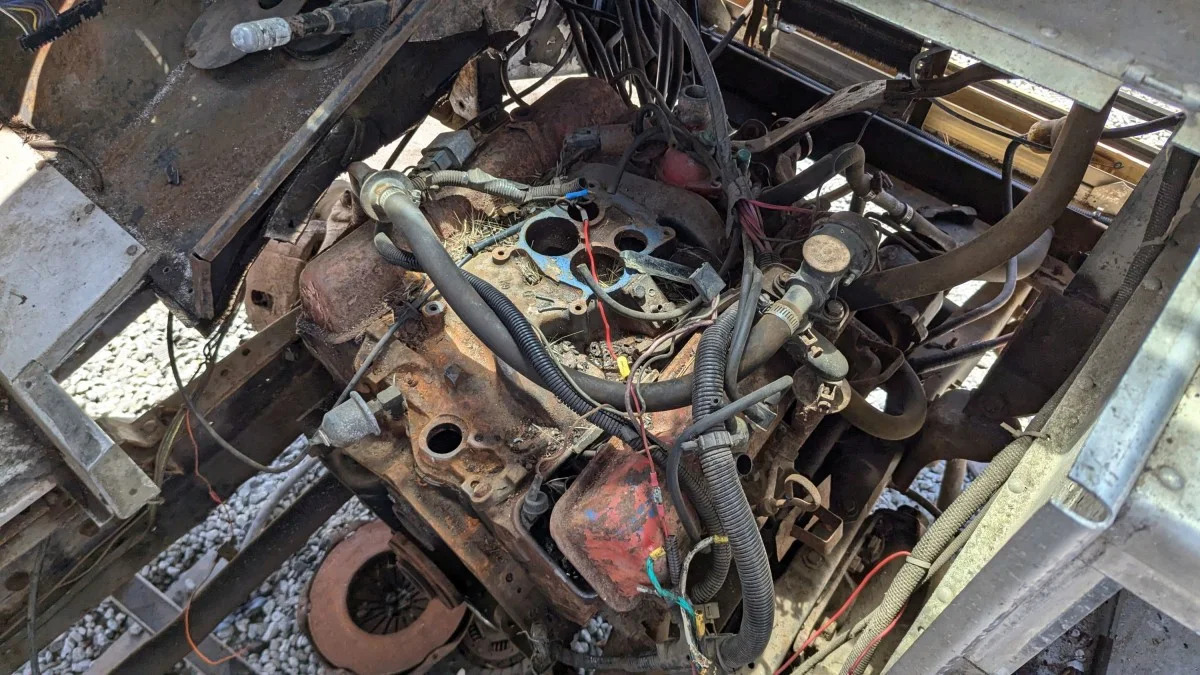
Since the chassis is the same one used by Chevrolet Step-Vans and GMC Value-Vans, the engine is a good old small-block Chevrolet V8.
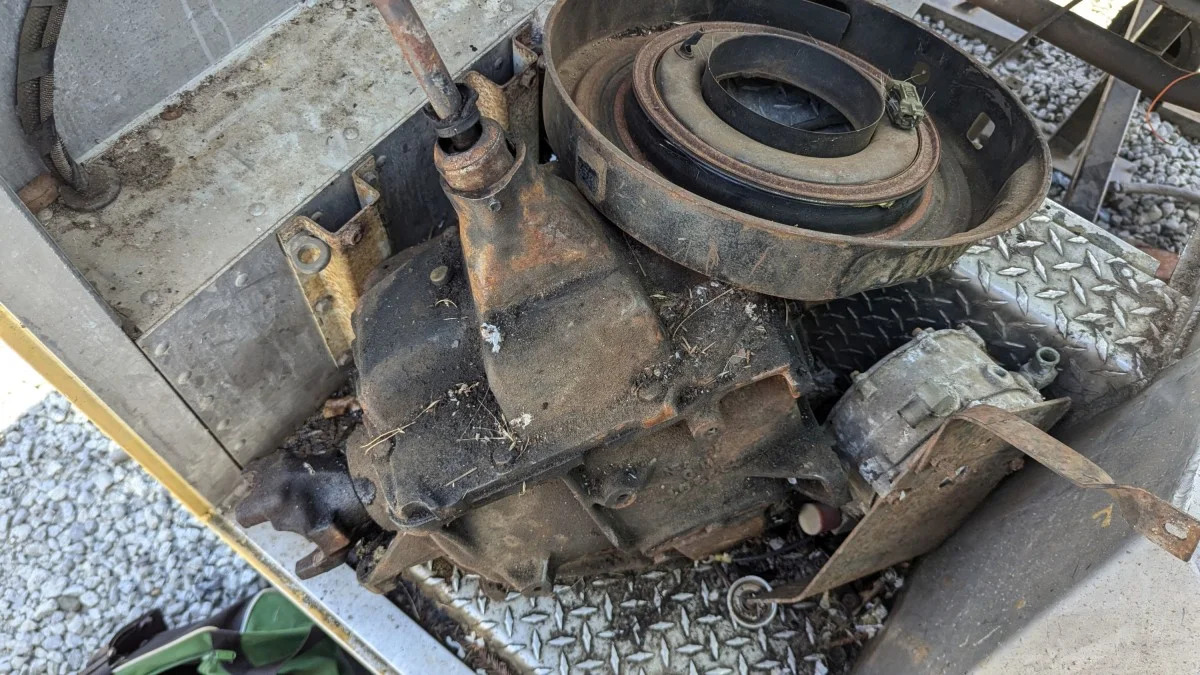
The transmission, probably a four-speed manual but perhaps a three-speed, is sitting in the doorstep.
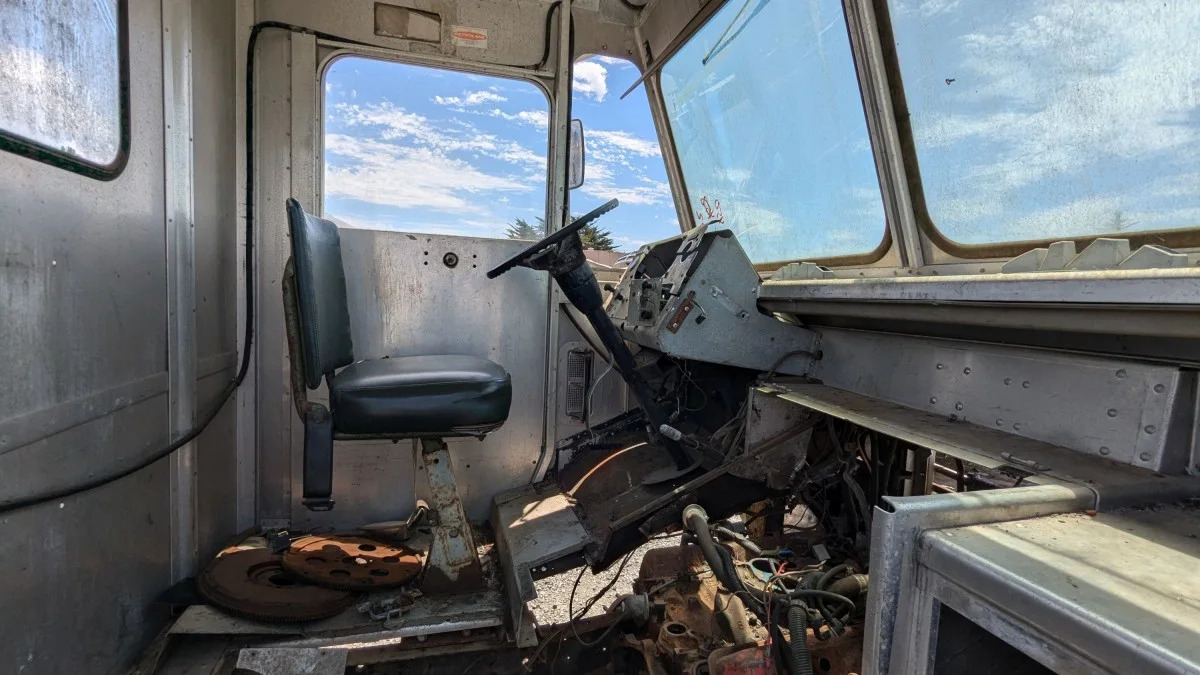
There was little chance of an inattentive Krew Kab driver getting mashed by a passing car while stepping out into traffic, because the only door was on the curb (kurb) side of the truck.
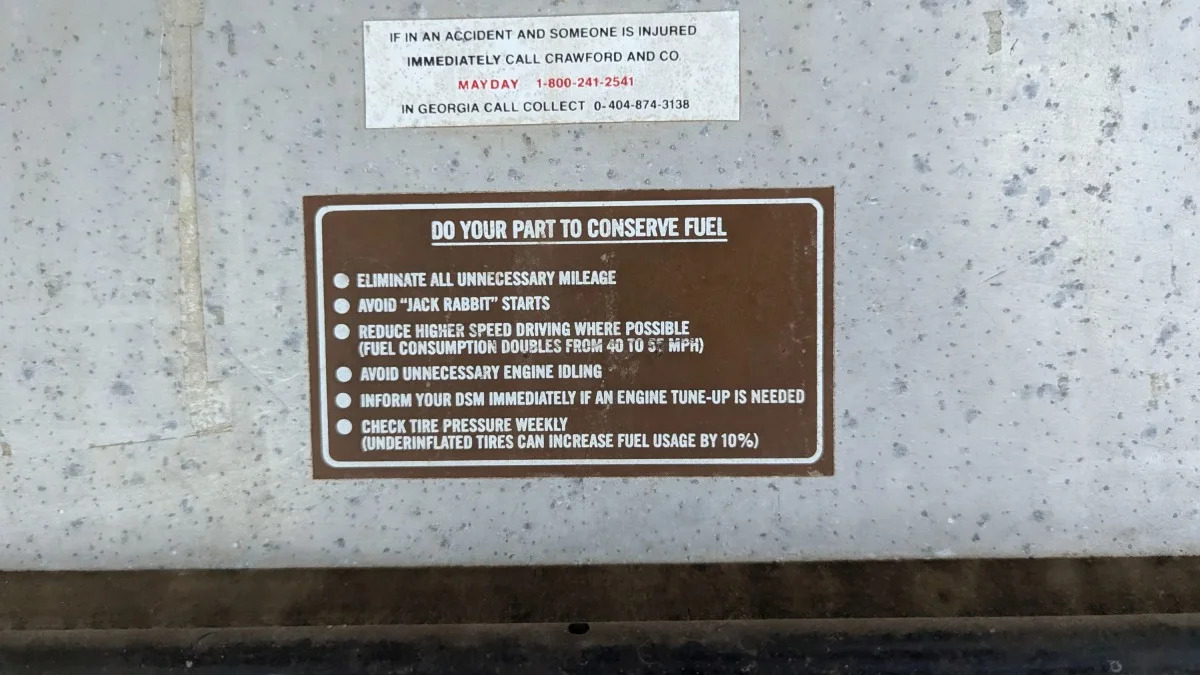
A smallish gasoline engine in a big trailer-hauling truck would have had a tremendous thirst, so this sticker was applied to the dash in an effort to get the driver to squeeze an extra tenth or so mile from each gallon of fuel.
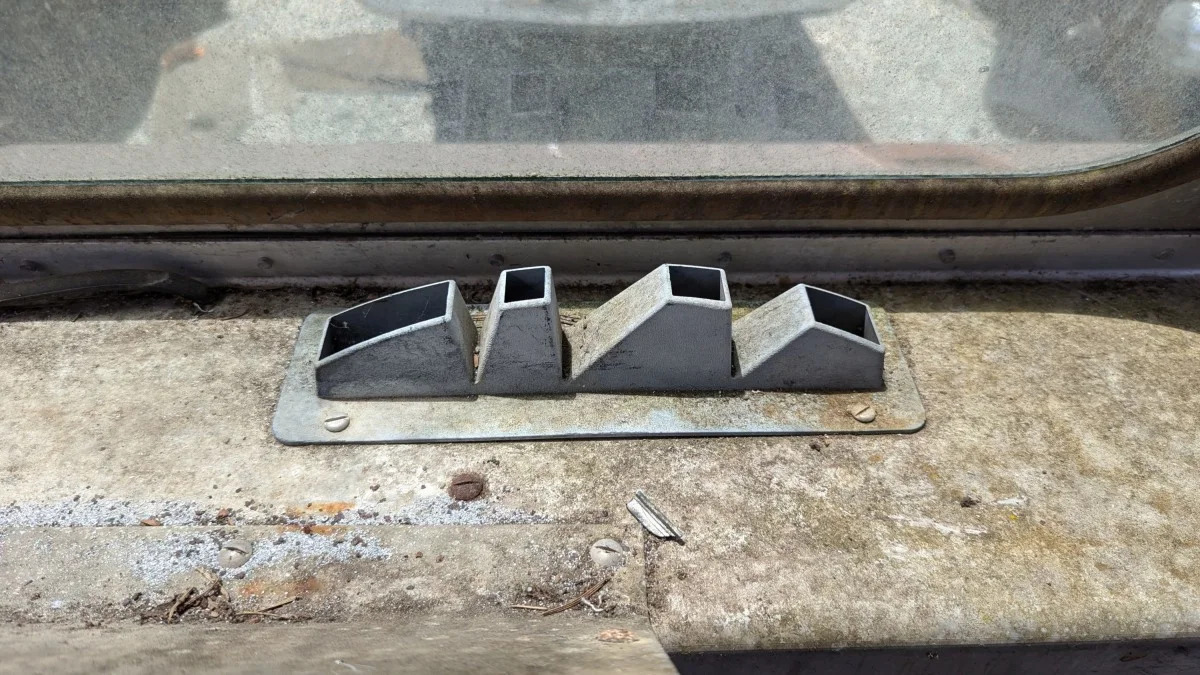
When you build a vehicle for pure function, you can get away with industrial-grade defroster vents.
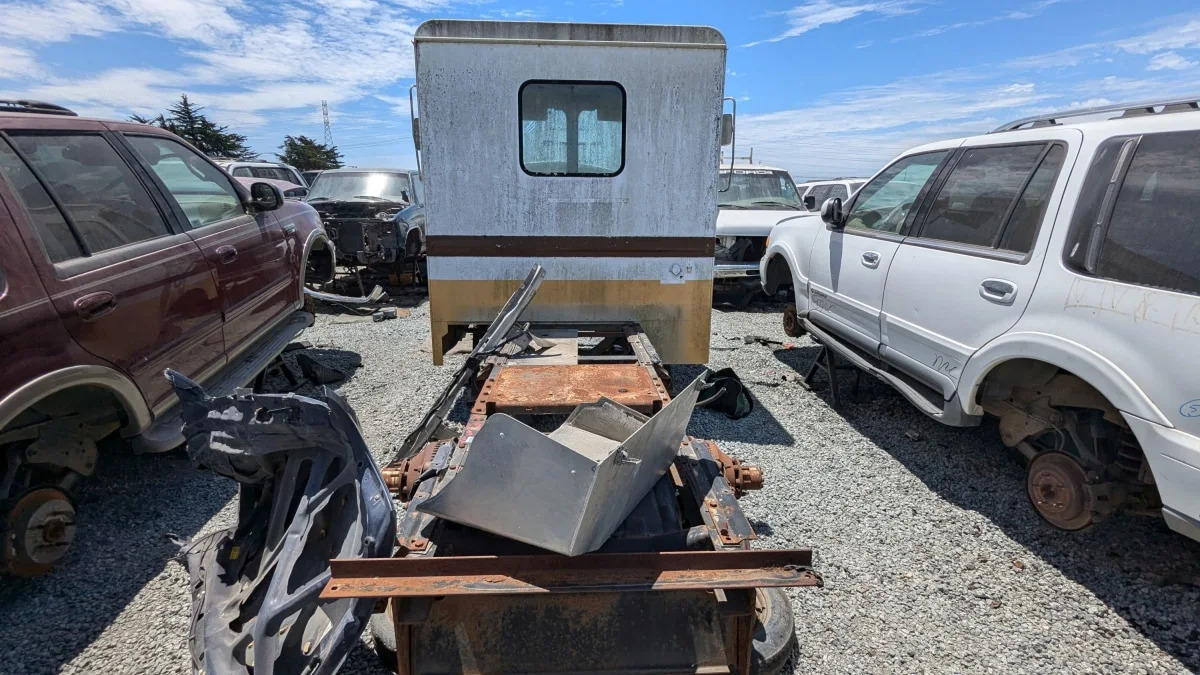
The Kubemaster trailer is long gone. Maybe it’s being used for storage somewhere.
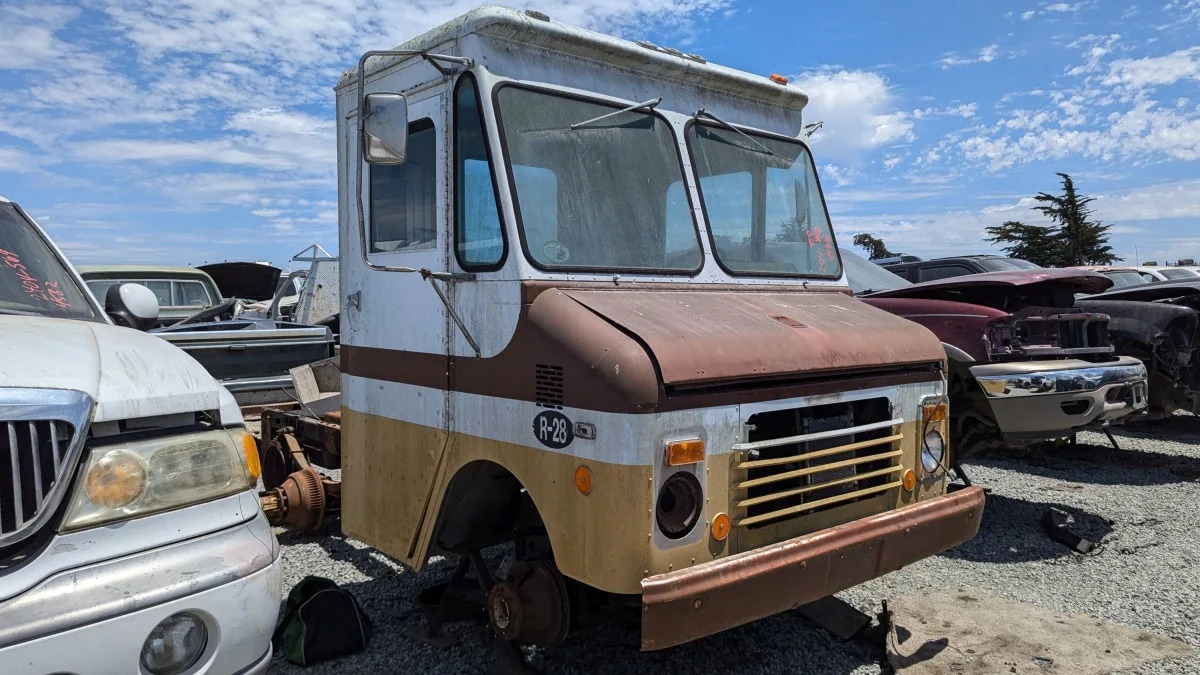
There’s a lot of valuable aluminum in this body.
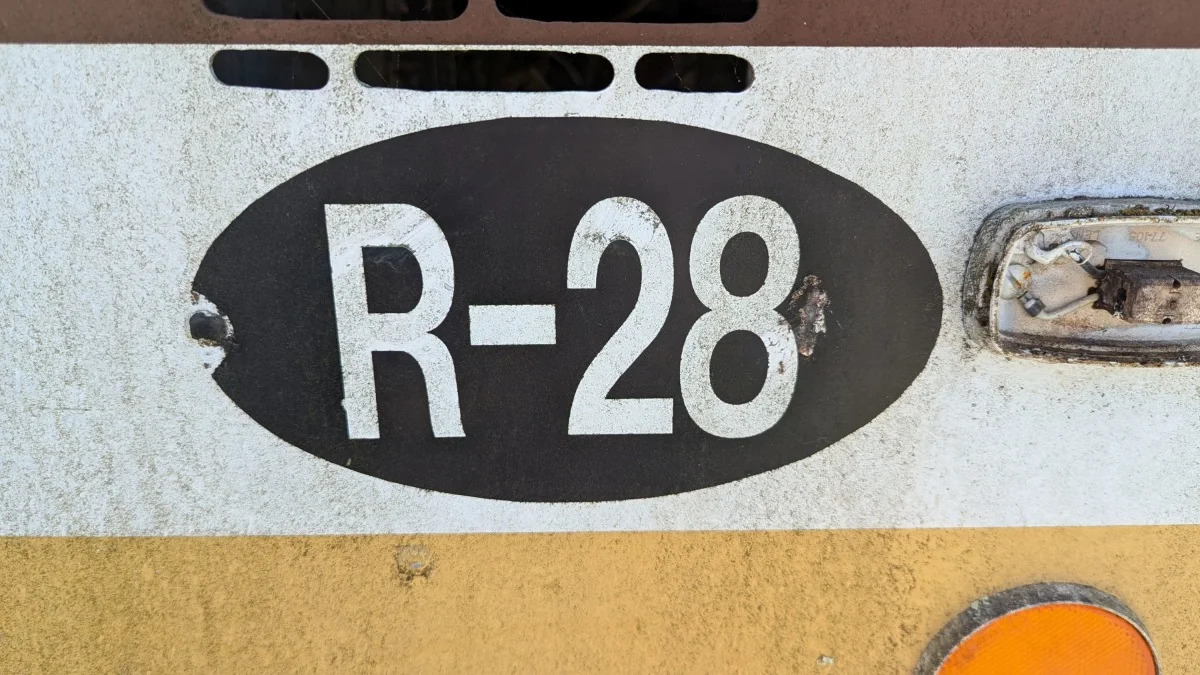
I lived in California during most of this truck’s career with Frito-Lay, so there’s a solid chance that I’ve eaten snacks delivered via its Kubemaster. Thanks, R-28!
You can still buy a new delivery van from Grumman Olson’s descendant, Morgan Olson.







